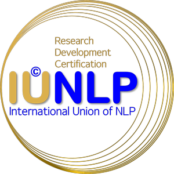Fear of abandonment
Intro
Fear of abandonment is a common and treatable condition that can cause significant distress and anxiety. With the right support, individuals can learn to manage their fear and build healthier relationships.
The fear of abandonment, also known as abandonment anxiety or fear of rejection, is a common emotional experience that can cause significant distress and anxiety. It is characterized by an excessive fear of losing a loved one or being rejected by someone important to you. This fear can manifest in a number of ways, including constant worry about the possibility of rejection, difficulty trusting others, and an intense need for reassurance from loved ones.
People who struggle with fear of abandonment may also experience physical symptoms such as panic attacks, difficulty sleeping, and problems with eating. This fear can also lead to unhealthy coping mechanisms, such as clinginess or possessiveness in relationships, or avoidance of relationships altogether.
There are several factors that can contribute to the development of fear of abandonment. These include past experiences of rejection or loss, insecure attachment styles in childhood, and certain personality traits such as low self-esteem or emotional insecurity.
However, it’s important to note that fear of abandonment is a treatable condition. Therapy, such as NLP, The ATH and TDC, can be effective in helping individuals learn to manage their fear and build healthier relationships.
Using NLP techniques to overcome the Fear of abandonment attachment insecurity and build healthy relationships
Parenting and family relationships are built on trust, love, and emotional connection. However, for some individuals, these relationships may be marred by fear of abandonment.
For parents and family members, fear of abandonment can have a significant impact on the quality of relationships and the emotional well-being of both the individual struggling with the fear and the loved ones around them. This fear can lead to unhealthy coping mechanisms, such as clinginess or possessiveness in relationships, or avoidance of relationships altogether.
Neuro-linguistic programming (The New Generation of NLP) is a form of therapy that can be effective in helping individuals overcome fear of abandonment in parenting and family relationships. NLP is based on the idea that how we perceive, process, and respond to information is shaped by our thoughts, beliefs, and language patterns. By identifying and changing these patterns, NLP can help individuals develop new ways of thinking and behaving that can improve their relationships.
One key NLP technique that can be used to overcome fear of abandonment is reframing. Reframing involves re-interpreting events or situations in a different light. For example, an individual who fears abandonment may interpret a loved one’s absence as a sign that they don’t care. Reframing this thought, however, by recognizing that the loved one may have a legitimate reason for their absence, can help reduce the fear of abandonment.
Another NLP technique that can be useful is the use of language patterns to communicate effectively and build trust in relationships. This can involve learning how to express oneself in a way that is clear and direct while also being empathetic and understanding.
NLP can also be used to help individuals develop self-esteem and self-confidence, which can be particularly useful for those who fear rejection or abandonment. This can involve learning how to identify and change negative self-talk and beliefs about oneself.
More advanced NLP techniques can be used to resolve the fear of abandonment are, Emotional discharging process technique, pulling back technique, past learns from present technique, past pacing technique, moon technique, feelings meter technique, and many others.
In conclusion, NLP is an effective approach to overcome fear of abandonment in parenting and family relationships. It can help individuals develop new ways of thinking and behaving that can improve their relationships, including reframing negative thoughts and using language patterns to communicate effectively and build trust. NLP can also help individuals develop self-esteem and self-confidence which can be beneficial for those who fear rejection or abandonment. If you’re struggling with fear of abandonment, consider reaching out to a professional NLP practitioner to help overcome this fear and improve your parenting and family relationships.
Exploring the connection between past traumas and fear of abandonment in NLP therapy
For many individuals, fear of abandonment can be rooted in past traumas or experiences of loss or rejection. These past experiences can shape an individual’s thoughts, beliefs, and emotional responses in a way that makes them more susceptible to fear of abandonment in current and future relationships.
Neuro-linguistic programming (The New Generation of NLP) is a form of therapy that can be used to explore the connection between past traumas and fear of abandonment. NLP is based on the idea that how we perceive, process, and respond to information is shaped by our thoughts, beliefs, and language patterns. By identifying and changing these patterns, NLP can help individuals develop new ways of thinking and behaving that can improve their relationships.
One key aspect of NLP therapy for fear of abandonment is identifying and addressing past traumas. This can involve exploring the individual’s past experiences of loss or rejection and the emotions and beliefs associated with those experiences. By understanding how these past experiences have influenced the individual’s thoughts and behaviors, NLP therapy can help them to process and integrate those experiences in a healthy way.
Another important aspect of NLP therapy is helping individuals to develop new, more positive beliefs and emotional responses. This can involve reframing negative thoughts and beliefs, such as “I am not worthy of love” or “I will always be abandoned”, into more positive and empowering ones, such as “I am worthy of love” and “I can have healthy, lasting relationships”.
By Jihad Abou Zeid
The developer of The new Generation of NLP
